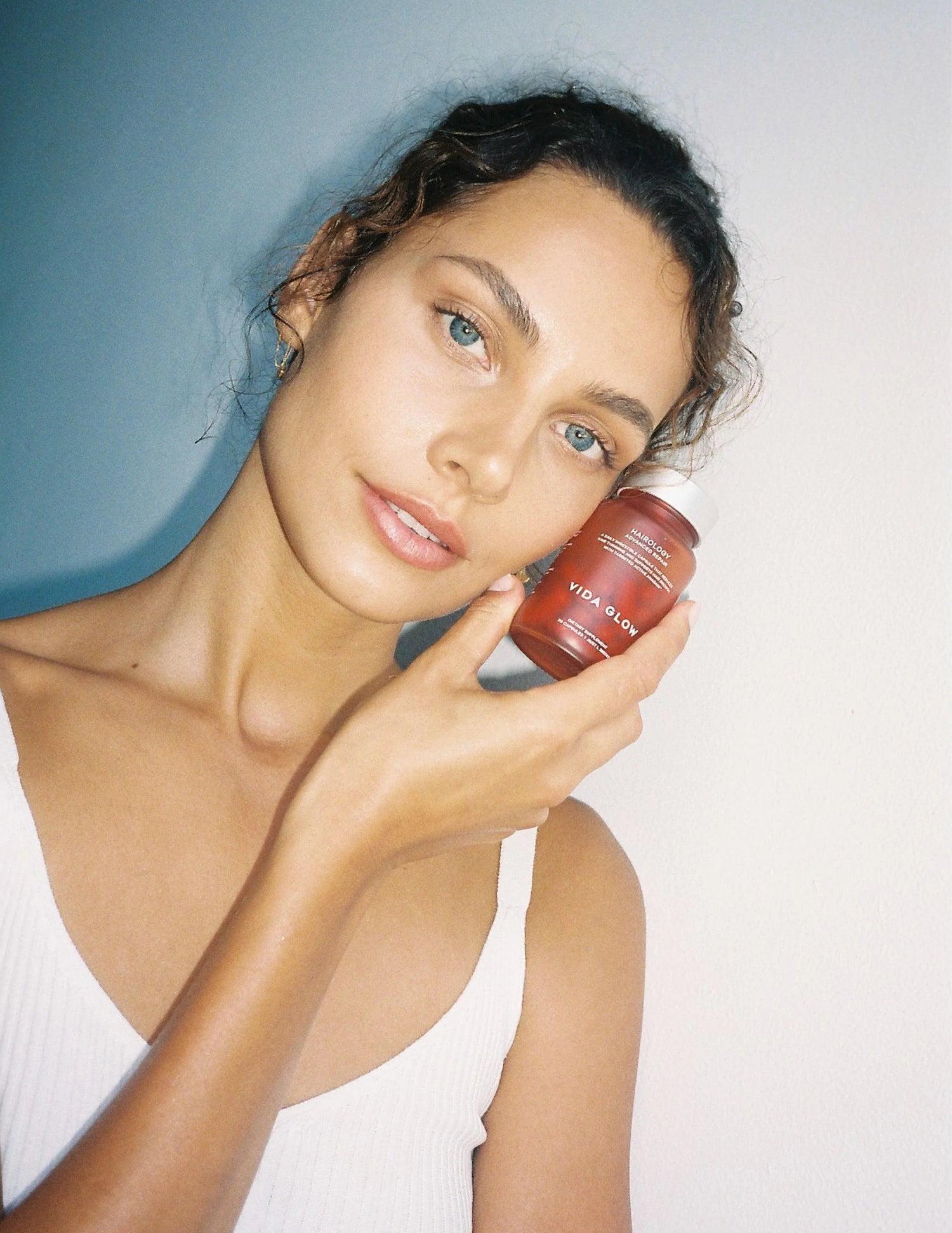From stress, hormones, nutrient deficiencies and modern styling habits – there are many factors at play daily that can compromise our hair health.
And while weak, thinning and damaged hair can feel like an enduring struggle – lush, thriving strands aren’t elusive. If you want to know how to get thick healthy hair, here are few easy steps you can implement into your beauty regime.
What is hair health?
Healthy hair is typically perceived as smooth in texture, naturally thick and resilient to breakage. But the difficulty is, your strands are consistently exposed to damage – weakened by environmental stressors, heat styling, colour and harsh haircare products. Eventually this results in loss of lustre, frizz, widening parts, split ends and other issues related to intrinsically weak hair.
What health issues cause hair loss?
In healthy women, anywhere from 6% – 38% will experience some degree of hair loss in their lives [1]. Telogen effluvium (TE) is a term that describes a form of temporary, reversible hair loss. TE is very common and can happen for a variety of reasons.
Genetics
The most common cause of hair loss is a hereditary condition that happens with ageing – which is known as androgenic alopecia or male and female pattern baldness. This tends to happen gradually, appearing as a receding hairline and bald spots in men and thinning hair along the centre of the scalp in women.
Hormone Changes
It’s extremely common for women to experience hair loss during periods of large hormonal fluctuations – including pregnancy, postpartum and menopause. Additionally, excess or deficiency in thyroid hormones can also prompt hair loss.
Post-partum hair loss is a prevalent concern amongst women. After childbirth an estimated average of 30% of hairs enter the resting phase of the hair growth cycle – known as telogen – approximately nine weeks post-partum. And this is usually when new mothers begin to notice increased hair loss and thinning – which can last anywhere from 6-24 weeks.
In the lead up to menopause, women experience a dramatic decrease in oestrogen production along with other complex hormonal changes that create an imbalance in the ratio of androgens to oestrogen that is thought to cause alternations to the hair growth cycle (2).
Thyroid hormones are imperative for the development and maintenance of the hair follicle. Therefore, when the thyroid isn’t functioning properly – be it there is too much or too little thyroid hormones circulating – this can trigger hair loss (3).




Leave a comment
This site is protected by hCaptcha and the hCaptcha Privacy Policy and Terms of Service apply.